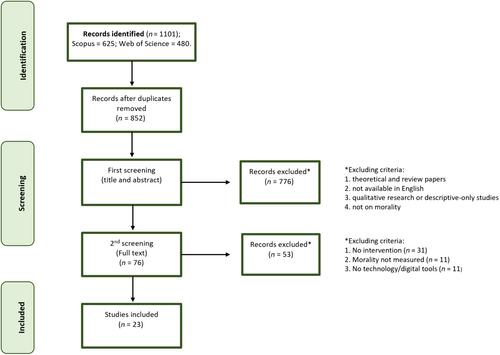Digital interventions to support morality: A scoping review
Abstract
Background
Morality and moral reasoning develop over the course of life, but such development may encounter obstacles. Psycho-educational interventions could be designed to improve moral reasoning and attitude towards prosociality. In the last decades, many interventions employed digital technologies ranging from multicomponent online platforms to serious games and virtual reality, making use of interactivity and immersive properties that could make moral stimuli more engaging.
Aims
This study aimed at reviewing the literature on digital interventions to support morality and moral reasoning, carried out with subjects of all age groups.
Methods and results
Two electronic databases were searched with a systematic approach, and retrieved publications were scanned by authors against inclusion criteria. Twenty-three articles were reviewed. In general, the literature describes encouraging results of digital interventions to support morality. Moreover, a huge variety of morality conceptualizations emerged across various contexts (e.g., professional, school and sports) as well as various outcome measurements (e.g., change in attitudes and change in behaviour).
Conclusions
Effectiveness of digital interventions may relate to immersive and interactive simulations in particular, in that they allow participants not only to learn about moral rules and principles but also to actively exercise their own morality to make decisions. Future research may build on the present scoping review to analyse specific types of interventions' effectiveness with a meta-analytical approach.


 求助内容:
求助内容: 应助结果提醒方式:
应助结果提醒方式:


